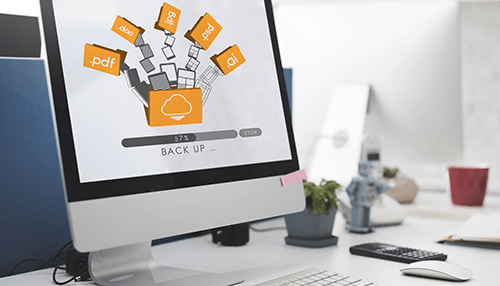When it comes to data, one can never really know when disaster could strike. Thousands of companies in Australia and other parts of the world are faced with disruptions and untold losses due to unexpected disasters and data loss. The sure way to secure your business is to be prepared. And what better way to prepare than with a robust backup plan?
What Is a Robust Backup Plan?
A robust backup plan has four main elements: backups, archiving, disaster recovery, and business continuity. The other elements depend on your organization’s needs but are equally important.
If you want to have a robust backup plan, your first line of defense should be periodic backups and archiving. Always back up your data when it’s created or modified. Otherwise, if you’re unsure of your need, you could check out the best managed IT services Sydney has to offer.
Now that you know what constitutes a good backup strategy, here are eight compelling reasons for a robust backup plan:
1. Data Loss Can Occur Unexpectedly
Data can be lost through crashes, viruses, malware, user error, physical damage, or theft. You’re probably one of those many people who have deleted some files off your computer by mistake. If you have a tablet or laptop, your files are particularly vulnerable because they can be stolen or damaged since the devices are portable.
However, if you regularly back up your files, you can rest easy knowing that they can be retrieved if they’re somehow lost.
2. Makes Auditing Easier
Depending on the type of business you run, you may be required to keep files and data, such as receipts and invoices, by the revenue authorities. Some authorities may even require your financial records from as far back as three years. You especially need to have robust backups if you work with client information, contracts, or other important records. In case of a disaster, you can rest assured that your files will be recovered.
3. Recovers Your Data
If you live in a disaster-prone region, you may need to have a robust backup system so that your data is safe, whatever the case. Ensure that your most important information and data is safely backed up to a different location or on the cloud. Having a disaster recovery plan also helps you access your files, even if you’re working remotely.
4. Reduces Downtime
It’s said that most businesses that suffer major data loss are paralyzed, never to reopen. Data loss can be equated to a fire loss. When you lose critical data, your business production is affected, thereby affecting your revenue.
If your business relies on your data, losing it can be like losing your stock to fire or theft. Without your data, you can’t pay your bills or your overhead. You could also lose your clients.
5. Saves Time
Trying to solve a data-loss problem isn’t only annoying but also time-consuming. Imagine having to rewrite a document because of an unexpected computer crash. If you think that’s bad enough, imagine the nightmare of having to redo a whole client database. The time you spend trying to recover your data is time you could spend on making your business more productive.
6. Protects Your Data
There are companies that you could trust to safeguard your business data. Such companies, like those offering data solutions and cloud storage, will usually guarantee the security of your data from threats such as cyber-attacks. In the event of a disaster, your business will continue, as real-time backups can be used to carry the business forward.
The coronavirus global pandemic is an example of the importance of having a safe data storage and backup strategy. Most businesses had to find ways of working remotely and keeping their data safe from cyberattacks and other threats.
7. Reduces Risk of Data Loss
Advancements in technology have led to some automated backup and disaster recovery services. Some companies provide safe, fast, and efficient backups that help reduce the risks associated with data loss when your business is operating remotely. This is unlike the traditional backup systems that require the physical presence of staff members.
8. Supports Your Remote Staff
A disaster can leave you with little or no time to deploy devices to your staff in remote locations. In such situations, your staff may need to use and secure company data, as well as remotely access business applications. Without access to company devices, you may need solutions such as cloud-based data sync to connect your business applications and data to your employees.
Bottom Line
The reasons discussed here should be enough to give you peace of mind. Always follow the best practices to backup critical data as your first line of defense. Local data backups could be ideal for less important information, but the most critical data should be backed up to a secure remote location, such as the cloud. Data on laptops and other portable devices must be regularly backed up on desktops or other storage in case of damage, loss, or theft.
In a nutshell, backing up your data is important for your company’s success.




